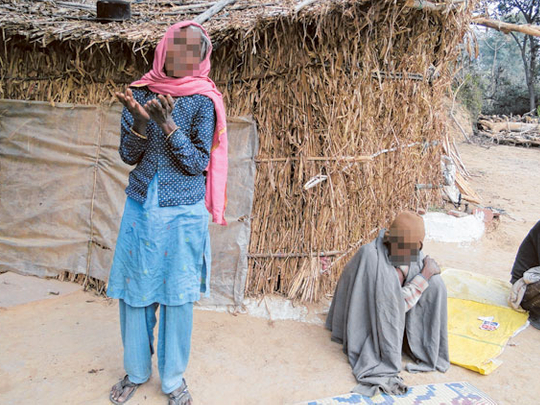
New Delhi: A month after the death of Jyoti Singh, the 23-year-old who succumed to injuries following a brutal gang-rape in a moving bus in Delhi, every Indian has been jolted out of stupor.
The incident put India on the front pages of international newspapers highlighting the country’s patriarchal setup. However, the bigger question which now haunts everyone is if things have improved since the fateful night of December 16.
Going by the news reports, they have not. Gruesome stories of rape and other crimes against women continue to be reported every day from every part of the country. These are the stories where the police either refused to file the First Information Report (FIR), or where the cops were less sensitive to the victim, or where the rapists were easily let off by the police or judiciary or where the law was simply found to be generous or ineffective.
Anger still persists since the December 16 gang-rape as it is yet to be replaced with hope that things will improve and our women will be safer than ever, and confidence that gender sensitivity will increase in general.
Significantly, in India, if there is one issue that concerns everyone from the poorest to the richest, it is the safety of womenfolk. Though the Central and state governments adopted a number of corrective and reformative measures aimed at improving the safety of women and preventing recurrence of such cases, women in general are yet to come out of the fear psychosis created by the December 16 incident.
The brutality with which the young paramedical student was assaulted by six youths moved the entire nation, triggering national outrage over rising cases of crimes against women. The story of faceless “Nirbhaya” or “Damini” or “Amanat” or whatever you choose to call her prompted Prime Minister Manmohan Singh to issue fresh instructions for improving the safety of women.
A slew of developments have taken place since then, including the arrest of all six accused, their trial in the fast track court, launch of women’s helpline, corrective measures taken by Delhi Police, greater coordination among law enforcement agencies and increased patrolling but a lot still needs to be done.
Interestingly, sitting uneasily with the India-on-the-move image, nearly 80 per cent of Delhi women still fear for their safety in the city, a latest survey, conducted by the Delhi government’s Women and Child Development Department, NGO Jagori and international organisation UNIFEM, has revealed.
The survey, released last week, is based on interviews of 5,010 people, including 3,816 women and 944 men. The rest are common witnesses like bus conductors, shopkeepers and auto drivers, who have a probability of witnessing acts of sexual harassment against women.
“Nearly three out of every five women reported facing sexual harassment not only after dark but also through the daytime. But, it is a good sign that 68 per cent of the women deal with harassment in some way like confronting the perpetrator or seeking help from family and friends,” Delhi Women and Child Development Minister Kiran Walia said.
“Public transport, buses and roads with faulty street lights are the spaces where women and girls face a high level of sexual harassment. There is a necessity to understand the problem. Now we have realised the problem, we will be able to find a solution. For instance, we will write for installing CCTVs in buses, then will also make sure that sexual harassment becomes a non-bailable offence through changes in the Criminal Procedure Code,” she added.
Father of the gang-rape victim feels that a change can surely be brought about if people really felt it from the heart.
“If people really feel it from the heart, then we can surely bring about a change, for a change is needed to ensure the safety of the womenfolk in our country henceforth. If no action is taken, from here on we can expect newspapers to be filled with only rape reports daily,” he says in Balia in Uttar Pradesh adding that “we were told that education will empower us but the rape of my daughter who otherwise had a great future ahead, opened our eyes that nothing has changed much in this so-called society of the educated which let her lay by in agony on the road and eventually snatched her away from us.”
Many still feel that they owe it to the young medical student whose dreams were shattered on December 16.
“We owe it to every faceless, nameless rape or molestation victim who might not feature in the headlines but whose story is no less tragic. Given the public outrage since the Delhi gang-rape, I thought that police would adopt a zero tolerance approach towards cases of sexual abuse. However, a month since the incident took place, who is safe now? I guess not a single human born a female: a baby girl, a teen, a lady, an old woman, no one is safe anymore in this country,” says Neha Pant, a Delhi University student.
“It was once a great civilisation that others looked up to. The culture has eroded with time, eclipsed by the wild wild west, in the name of modernisation. Fear of law is the single biggest deterrent in preventing rape but that fear just does not exist in the minds of criminals,” call centre executive Soumya Rana says.












